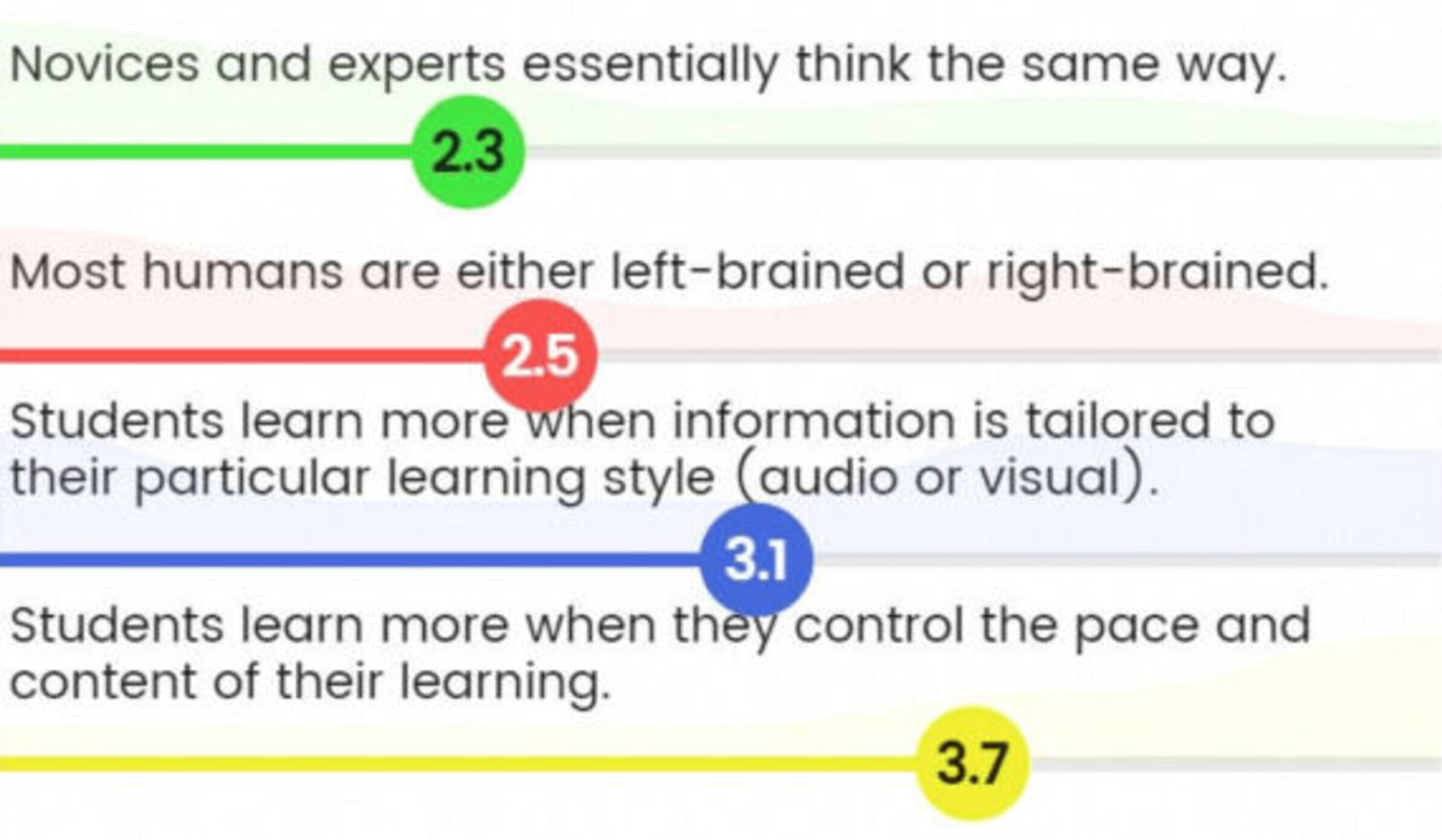Posted on
Reporting on the science of learning
Category: Cognitive Science
At Deans for Impact, we believe that all educators should know important cognitive-science principles related to learning. But do education journalists know these same principles? Should they?
Recently, I had the privilege of speaking at the national conference of the Education Writers’ Association, and I used the opportunity to gather a little data related to this question. Using the real-time polling app Mentimeter — a terrific tool for quick quizzing, by the way — I asked the attendees of my panel session to respond to four distinct claims about learning. Here’s how they responded on a scale of 1-5, with five representing complete agreement with the statement (n=26):

Regular readers of the Deans for Impact blog and those familiar with our The Science of Learning publication will know that most cognitive scientists would firmly disagree with all four of these statements. Maybe if you squint hard enough you could support the last claim about student agency enough to move to “2,” but you almost certainly wouldn’t see any 3s, 4s or 5s from learning scientists.
Education journalists aren’t scientists, of course, and I don’t mean to shame or judge them by noting that many of them hold beliefs at odds with the science. I mean, how could I? Until relatively recently, I held many of the same mistaken beliefs. Learning styles and the left brain/right brain distinction are deeply embedded in our culture, they are intuitively plausible, and most people don’t spend their free time reading academic journals.
But what this data hints at — albeit in cursory, limited fashion — is that many education journalists may not be familiar with insights from existing research on cognition. This results in stories such as this one where non-scientific claims based in “brain theory” are promoted to educators, despite the absence of evidence to support them (or even contradictory evidence). This is how bad ideas spread.
The good news is that many journalists and commentators such as Ulrich Boser, Karin Chenoweth, Lisa Hansel, Emily Hanford, Annie Murphy Paul, Robert Pondiscio, Paul Tough and others are doing terrific work to elevate cognitive science in the education discourse. And if my EWA session is any indication, when journalists are presented with the actual science, their curiosity is sparked — as are new story ideas.
To that, I give a 5 (sorry, had to).